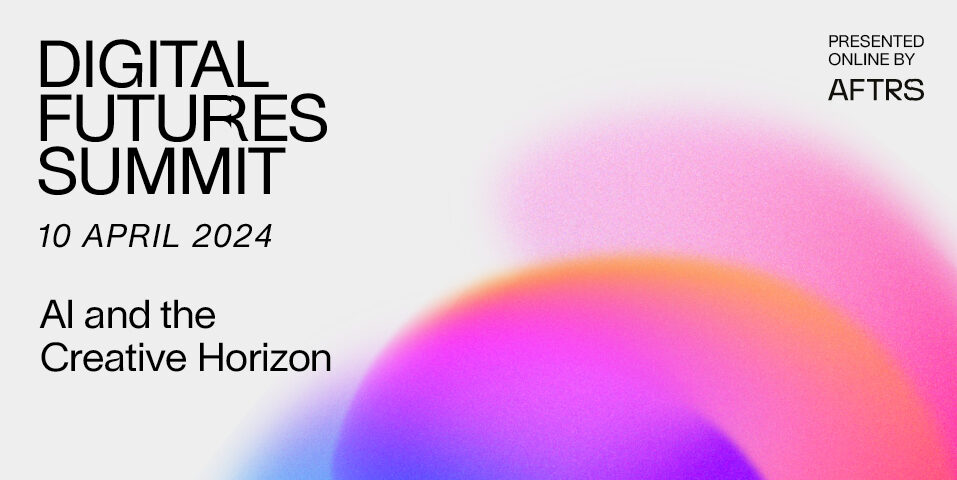AFTRS welcomes you to the fourth Digital Futures Summit – an interactive online event focused on Artificial Intelligence (AI) in the creative industries and education.
The Digital Futures Summit is an opportunity for leaders, educators and policymakers in the Australian and international screen and broadcast industries to discuss the impact, challenges and possibilities of technological change on labour, training and creativity. This fourth summit will bring a range of conversations around creativity, pedagogy, ethics, Indigenous sovereignty and inclusion in the emerging age of AI.
This live and interactive online event includes some of Australia’s and the world’s foremost AI experts from a range of different companies, universities and institutes. Across all the sessions, you will have the opportunity to listen and ask questions of each speaker.
Sessions:
- Learning with AI
- Critical Making: AI in Screen and Audio Education
- Augmented Creativity: AI in the Creative Industries
- Indigenous Sovereignty and AI: Storing Cultural Practices and Reclaiming Narratives through AI, Film, Radio and Beyond
- The Politics of AI: Navigating Ethics, Inclusion and Job Disruption in the Creative Industries
To join the Summit, please register for each session you wish to attend. Registration for all sessions is free.
